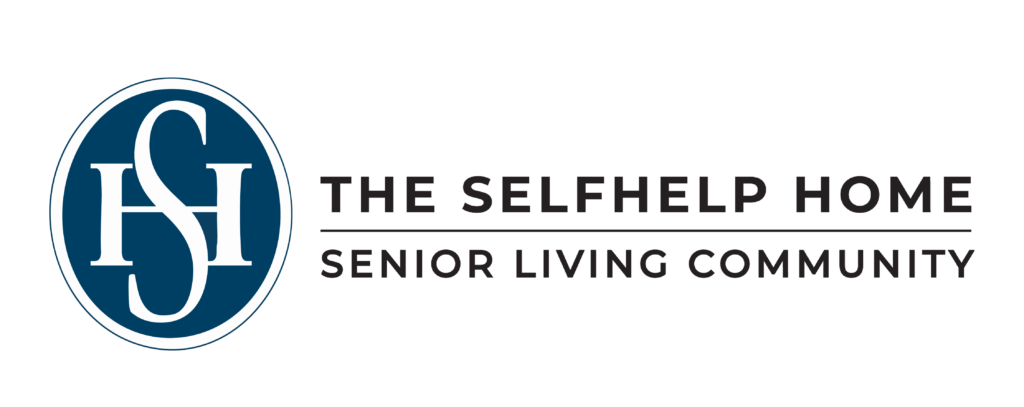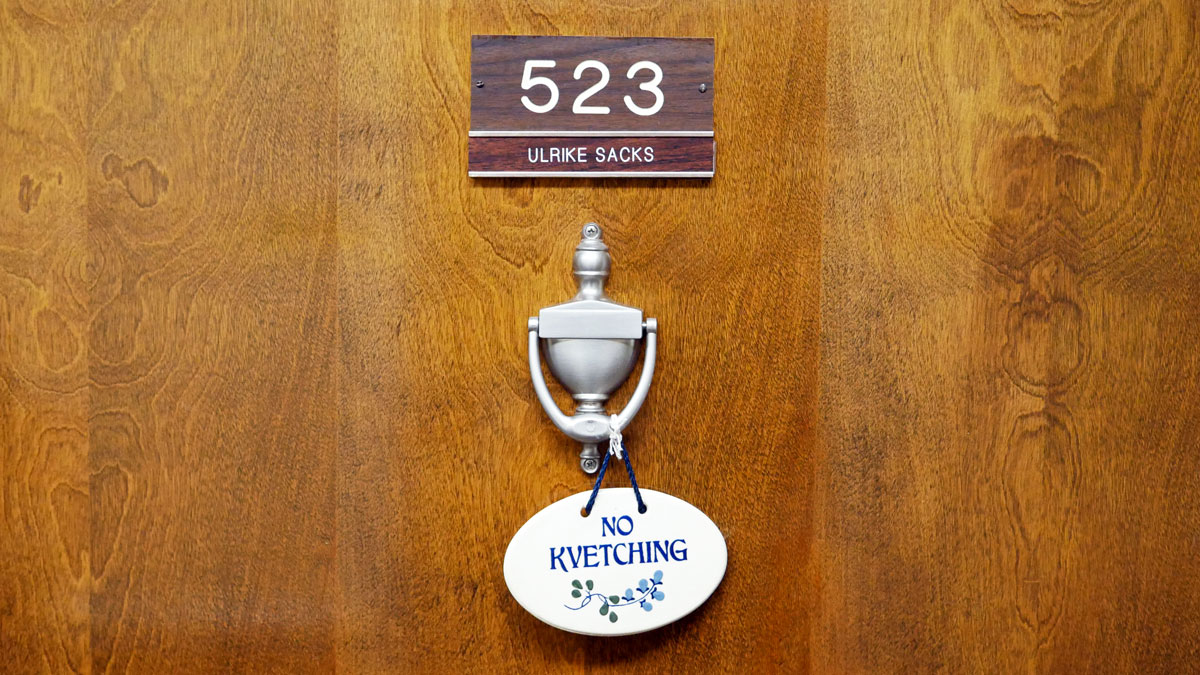The daughter of a Swiss engineer and a Dutch pianist, Ulrike Sacks spent ten happy years in Florence, Italy. “But my father was an outspoken critic of Hitler and in 1939 we had to flee overnight,” said Ulrike. “It is one of my biggest memories as a child.”
They found safe haven in Switzerland, where Ulrike graduated high school. After the war, her parents returned to Italy and she moved to Paris. She met her first husband, Yannis, while studying psychology and philosophy at the Sorbonne. The couple had a daughter, Yael, spent two years in Munich and then settled in Greece, where their son Christophe was born. “My husband was very traumatized from the war and the German occupation,” Ulrike said. “He was a wonderful husband and father, but had difficulty making it in the world.”
Ulrike did not find work as a psychologist in Greece. “There was no use for psychologists at that time; the country was too happy,” she said. “So I taught languages in various high schools.” At that point she was fluent in French, Italian, German, Dutch and Greek.
When Yael completed high school, she attended Oxford and International University in Geneva, studying international law and politics. In Geneva, she connected strongly with the beliefs of a circle of Jewish friends, converted to Judaism and moved to Israel. She lived in Jerusalem for six years, where she worked in public relations for the city’s mayor. Yael now lives in Paris and is studying Chinese medicine.
When Christophe completed high school, at 16, he wanted to follow in his grandfather’s footsteps and become an engineer. His sights were set on a prestigious university in Paris, but he needed to attend preparatory school, so Ulrike moved to Paris with him. “He was not going to live in Paris on his own at 16!”
“In Paris I couldn’t get a work permit, so I went back to the Sorbonne and completed a degree in Russian,” Ulrike casually explained. “I then worked with Russian dissidents, making several trips to the USSR on their behalf.” During Ulrike and Christophe’s residency in Paris, Yannis died of a sudden embolism.
It was through her connection with the Russians that Ulrike’s life path led to the U.S. “One of them was heading a research project under the Carter Administration that involved building a computer game that Americans and Russians could play together to increase cultural understanding. It never received funding.
While attending a psychology conference, she met James Sacks, a psychologist and leader in the field of psychodrama, a therapeutic modality that incorporates role playing and group dynamics. It was a great match between two educated, creative, cosmopolitan individuals with many shared interests. The only problem was that Jim hailed from a strongly observant Jewish family. “My father-in-law would have been very unhappy to have his son married to a shiksa.”
“But I was always interested in religions and here was something new to study and learn,” Ulrike said. “So this is when I became Jewish. I converted, married Jim, and we settled into our life in New York.”
Ulrike got a job at Maimonides Hospital in Brooklyn, working with severely disturbed Russian and Italian refugees. With Jim’s encouragement, she also completed coursework at the Institute for Psychoanalytic Training and Research and added a private psychoanalytic practice to her schedule.
In 2001, Jim was diagnosed with ataxia, a degenerative neurological disease. The malady does not affect intellectual functioning, but compromises both voluntary and involuntary muscle movement. Major life changes ensued, beginning with adjustments to both their professional lives and to their housing, as Jim could no longer navigate stairs. Without family in New York, the couple considered another base of operation. Aside from Ulrike, Jim’s closest associations were still in Chicago, where he had lived and studied at the University of Chicago for 12 years. In 2006, they relocated to Hyde Park.
It was during this time of transition, that Ulrike found her spiritual home in Tibetan Buddhism, taking precepts from the Dalai Lama himself in 2008. Her spiritual path, her intellectual vigor and her resiliency have sustained her over the years.
“I took care of Jim for ten years at home, but he was getting worse and worse and I couldn’t give him the care he needed. His mind was still completely sharp, but we needed more help with the physical challenges, so in January of 2017, Jim moved into The Selfhelp Home.” Ulrike spent lots of time with Jim at Selfhelp, assisting him with writing the articles he still authored, sharing meals and attending discussion group. She decided to move to Selfhelp be with him full time.
But Jim died suddenly in June 2018, literally days before Ulrike moved in.
“I waited too long, but I had no choice because I had given up the apartment,” Ulrike explained. “In the beginning it was very strange being here by myself, but staff has been very supportive. There were a number of residents I already knew, and Sophie (Selfhelp’s dietary director) was so nice and sat me at the table with those people, and accommodated my vegetarian diet. I really miss Jim, but I am accepting and adjusting.”
Ulrike stays active and involved both mentally and physically at Selfhelp, attending book club, concerts, movie programs, Jewish studies and tai chi. “I like Jonathan very much and often go to his Torah study on Friday nights.” She would love to see Jonathan start a Hebrew language group because, well, why not add an eighth language to her repertoire? It’s never too late!
Her major piece of advice to people is: “Be less kvetchy! It is very negative always complaining about this, about that. Complaining takes your strength and your vibrancy. Try to see the positive side of things. Don’t just ask for help, help each other.”
Taking her own advice, Ulrike puts her expertise to use volunteering as a lay counselor for residents on the seventh and eighth floors. “I do think the community here is good, it is very holding and supportive,” she said, “but everyone has to find their own way to peace and contentment.”


